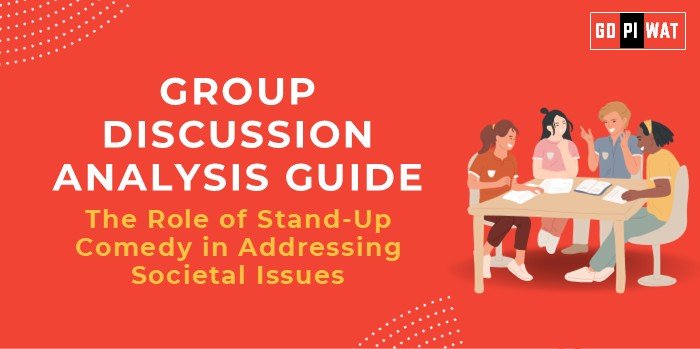📋 Group Discussion Analysis Guide: The Role of Stand-Up Comedy in Addressing Societal Issues
🌐 Introduction to the Topic
- 💡 Opening Context: Stand-up comedy has evolved beyond mere entertainment into a powerful medium of social commentary. From gender equality to political satire, comedians worldwide have sparked thought-provoking debates.
- 📜 Topic Background: Originating as a form of entertainment, stand-up comedy now serves as a cultural reflection, addressing taboo subjects and fostering societal awareness. The global popularity of platforms like Netflix and YouTube has amplified comedians’ reach, bringing societal issues into the spotlight.
📊 Quick Facts and Key Statistics
- 🎤 Global Stand-Up Revenue (2023): $12 billion – Reflects its widespread appeal and market growth.
- 🌐 Social Media Influence: 60% of viral comedy content involves socio-political themes (Statista, 2023).
- 🌏 Audience Diversity: 45% of global viewers prefer stand-up content addressing societal issues (PwC, 2023).
👥 Stakeholders and Their Roles
- 🎭 Comedians: Use humor to present and dissect societal norms and flaws.
- 👨👩👧👦 Audiences: Interpret, discuss, and share the content, extending its impact.
- 📺 Media Platforms: Act as amplifiers, shaping accessibility and content framing.
- 🏛️ Governments/Authorities: May view comedy as critique, leading to regulation or censorship.
🏆 Achievements and Challenges
✨ Achievements
- 📢 Raising Awareness: Shows like Hasan Minhaj’s Patriot Act address complex topics like immigration and healthcare.
- 🚪 Breaking Taboos: Discussions on mental health, feminism, and racism are now mainstream in comedy.
- 🌍 Cultural Exchange: Global streaming platforms enable cross-cultural humor and understanding.
⚠️ Challenges
- ⛔ Censorship: Comedians often face restrictions in authoritarian regions.
- ⚡ Polarization: Jokes on sensitive issues can deepen societal divides.
- ❌ Cancel Culture: Increased scrutiny impacts creative freedom.
🌍 Global Comparisons
- 🇺🇸 USA: Strong tradition of satire influencing public opinion (e.g., The Daily Show).
- 🇮🇳 India: Rising voices like Vir Das challenge cultural stereotypes despite regulatory hurdles.
💬 Structured Arguments for Discussion
- 💪 Supporting Stance: “Stand-up comedy is an effective tool for raising awareness and fostering dialogue on societal issues.”
- ⚖️ Opposing Stance: “Comedy simplifies complex societal issues, leading to misinterpretation or trivialization.”
- 🤝 Balanced Perspective: “While stand-up comedy raises awareness, its impact depends on the audience’s ability to engage critically.”
📚 Effective Discussion Approaches
- 💡 Opening Approaches:
- 🎭 Start with examples of globally influential comedians addressing issues.
- 📊 Use statistics to demonstrate comedy’s societal impact.
- 🤔 Counter-Argument Handling:
- ⚖️ Address concerns of trivialization by highlighting examples of impactful comedy.
- 📜 Discuss censorship challenges as a reflection of comedy’s significance.
🔎 Strategic Analysis of Strengths and Weaknesses
- 💪 Strengths: Accessible medium, cultural relatability, global reach.
- 🛑 Weaknesses: Risk of oversimplification, limited reach in non-digital audiences.
- 🌟 Opportunities: Partnering with NGOs or movements to amplify causes.
- ⚠️ Threats: Misinterpretation and backlash from controversial content.
🎓 Connecting with B-School Applications
- 📊 Real-World Applications: Marketing campaigns using humor; leadership insights on managing public narratives.
- ❓ Sample Interview Questions:
- 💡 “How can comedy influence corporate branding?”
- 📜 “Discuss the ethical line in comedy addressing societal issues.”
- 📝 Insights for Students:
- 🎤 Comedy’s use in crisis communication strategies.
- 👨🎓 Understanding audience segmentation through humor.


